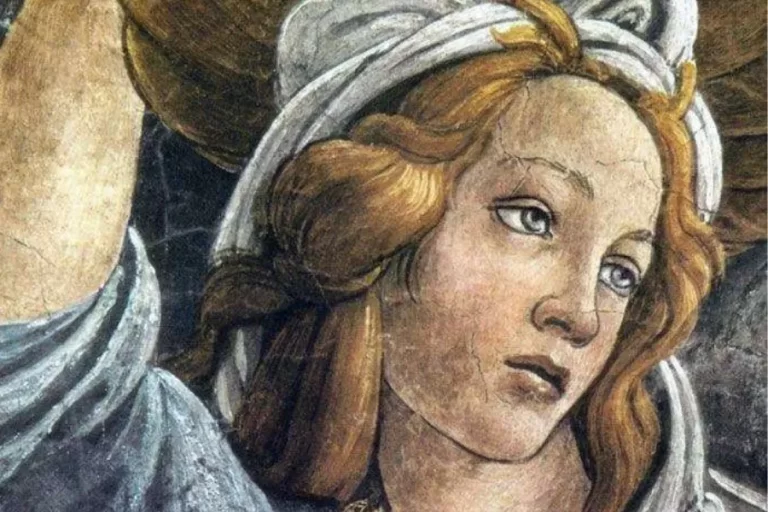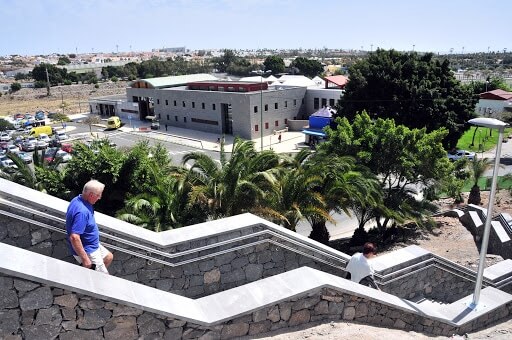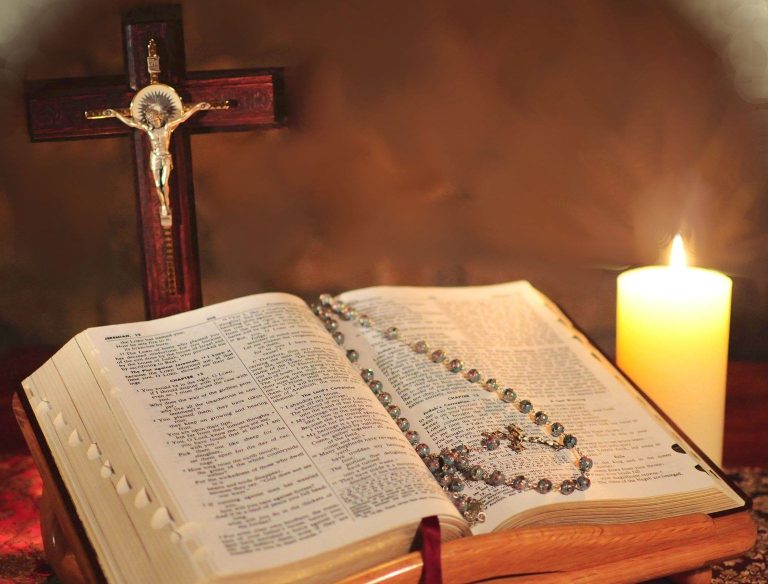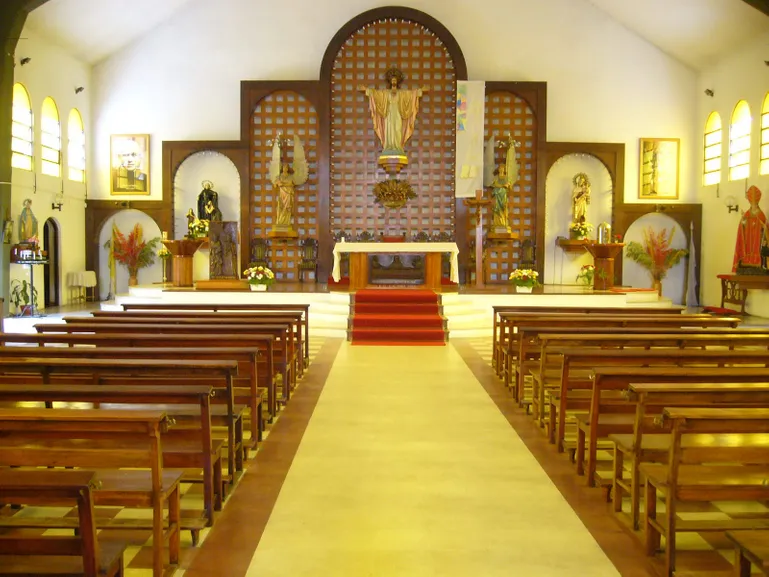The Catholic Charismatic Renewal: Meaning
Catholic Charismatic Renewal , simply put, is a movement within the Catholic Church, a current of grace, made up of people and each community in which they carry out practices such as speaking, praising, praying in tongues and singing Catholic charismatic renewal .
If you want to know what the Catholic charismatic renewal is in a deeper way, where and how it originated and much more, then continue reading this article.
Catholic Charismatic Renewal
Catholic Charismatic Renewal is a current of grace that the Holy Spirit causes to function everywhere and that must reach all people, institutions and apostolic and non-apostolic persons.
This blessed catholic charismatic renewal was born from the Holy Spirit, who gave it life, it is also born from the desire that our Lord God the Father Almighty gave him, so that he may carry out a new Pentecost in our days, in view of the deep renewal of the Holy Catholic Church.
As in Pentecost, from the apostles the very person of the Holy Spirit is received, as a gift from God the Father through his son Jesus already glorified, said Pentecost is not a term, but the great beginning of walking and living in the spirit to have new life.
Personal renewal is the opening of our entire life to the person and work of the Holy Spirit, extending to all human existence, renewing man from the depths of his being, that is, in his heart, as Ezekiel says in the chapter 36, 25-27:
In this chapter God tells us that he will pour his clean water on us, the living water (his word) cleansing us from all our sins, and also, he will change our heart turned into stone by so many wounds and give us a new heart.
This new heart and also his spirit dwelling in us will make us enjoy his grace, blessings and will inspire us to follow him, serve him and worship him with more love and joy than we have ever been able to experience.
We must always ask God in this personal renewal to fill us with his clean water, to change us and lead us as a shepherd does with his servants and renew our little world, so that we can act and feel differently, perceive the world differently. through his eyes.
We must be absolutely and completely convinced that this river of living water that God offers us through his son and the Holy Spirit has the power to heal everything it touches and everything that is rotten and needs to be renewed.
Let us renounce satan, all his tricks and works loaded with evil intentions, let us renew our baptismal promises, and pray to God Omnipresent and omnipotent, to grant us the wisdom and strength we need to be able to renew our body, our mind, our heart. and our spirit.
The Catholic Charismatic Renewal is much more than a movement within the Church, rather, it is the Church in constant movement. It is about a constant conversion, surrender and plea for renewal to our God the Father, surrendering ourselves to the Holy Spirit, both on a personal level and within our church.
Cardinal Leon Joseph Suenens, in a pastoral letter he wrote in 1973 for Pentecost, expressed that the Catholic Charismatic Renewal is a movement of the individual towards the Holy Spirit that expands to every corner of the world.
Monsignor Alfonso Uribe Jaramillo, residing in Colombia, for his part, defined the Catholic Charismatic Renewal as a deep and honest reflection with ourselves, which allows us to understand and know ourselves better to make us aware of our weaknesses and request the grace of the Holy Spirit to help us and work in us.
It is to understand the impact that each of our actions has not only on a personal level, but also for others and to request the presence of the Holy Spirit, the love and the spirit of God so that it dwells in our hearts, renews them, of a new one and allows us to be reborn.
Also, it is learning to be more docile and surrender ourselves completely to the Holy Spirit, to God the Father and his son so that they forgive our sins and allow us to be better, act, think and feel according to their will.
Evangelizing is much more than being multipliers of the word of God, it is to truly renew serving God with joy and being witnesses to the resurrection of Jesus, the King of Kings, the great teacher, so that we can be inspired by them and cry out to God with more strength and share his word to others with greater joy, joy and love.
The Catholic Charismatic Renewal when it stays within the doctrine of the Church is fine, but when it leaves the doctrine of the Church, even by a priest, it should be considered a problem.
Father Benigno Juanes sj, an important and recognized leader of this movement defines the Catholic Charismatic Renewal as the rediscovery that both the Church and the Holy Spirit have in our lives, the importance of living according to the will of God and his word.
The Catholic Charismatic Renewal is not the enemy of the Catholic Church, on the contrary, it is a group of people within the Church and this movement is so important that John Paul II himself once said that the hope of the Church was in the Catholic Charismatic Renewal.
Like everything else, it must be admitted that the Catholic Charismatic Renewal is not perfect and has some faults, one of which is pride, because since we believe in the Holy Spirit and the Holy Spirit works in us, they then think that those who they speak in tongues than the Bishop himself.
Any gift, including speaking in tongues, that is bestowed through the Holy Spirit, is not, should not be, and will not be more important than the hierarchy held by the Holy Church. This is a point that is very important to clarify and underline.
God has chosen certain men (religious) to lead his Church here on earth, be his representatives, multiply his word and guide his people, and these are more important (and should be respected) than any member who belongs to the Catholic Charismatic Renewal and can speak in tongues.
History
The Catholic Charismatic Renewal may be perceived by some as an enemy of the Catholic Church, however, this is nothing more than a myth and is not a concept originated or promoted solely by Protestants.
People who believe this do so because it is said that Pastor Kevin Wynne exploited this concept, however, its genuine origin descends from the Pentecostal charismatic movement, which emerged from the Second Vatican Council, and later, was incorporated by the Catholicism.
The Catholic Charismatic Renewal was approved by Pope Paul VI during his pontificate in 1973. Charismatic Renewal is an expression that originates from the Lutheran Minister Harald Bredesen in 1962, who first used the term “charismatic” to refer to to the activities celebrated by the Church, both Protestant and historical.
While in the Protestant Churches they use the word “Neopentecostal”, Minister Harald Bredesen decided to use “Charismatic Renewal” for the Historical Churches.
The Catholic Charismatic Renewal originated in 1967, when Ralph Keifer and William Storey, both professors at Duquesne University (United States), led a group of lay people with whom they all prayed together to request an outpouring of the Holy Spirit.
How did this happen? What inspired them? It turns out that Stephen B. Clark and Ralph Martin had read a book The Cross and the Dagger (a Pentecostal reading) which narrated the Christian ministry led by Pastor David Wilkerson and the impact it had had among New York gang members.
These, inspired by that reading, felt in their hearts that they should attend the Christ Church in Pittsburgh, located in the house of Florence Dodge, a Presbyterian charismatic, what they did not know, is that in that place they would receive their first Pentecostal outpouring, granted by the Holy Spirit, and then, they would also receive the gift of speaking in tongues.
Also, they would receive the gift of healing and other charisms, all characteristic of a charismatic or Pentecostal current. It was only a matter of time, a very short one at that, for this movement to begin to spread rapidly to other universities.
Some of the first universities influenced by this nascent movement were: Notre Dame, located in Indiana and East Lansing, based in Michigan.
Pentecostal Pastor David Du Plessis, another of those who exerted great influence on the mission and expansion of this movement, contributed to publicize what is now called “Protestant Pentecostalism.”
This Pastor also participated in the World Council of Churches in the years of 1954 and 1961 and his participation was so significant that he was later invited to the Second Vatican Council as a Pentecostal representative.
In its early years it continued to expand to new frontiers, arriving in the United States in the early 1970s. Some preachers have remained loyal to this movement, and even play important roles today.
For example, the Capuchin Raniero Cantalamessa usually preaches at the retreats organized by the Pope, the laity Gérard Croissant, Pierre Goursat (who is in the process of being approved for his beatification) and Josette, Alfonso Uribe Jaramillo, Auxiliary Bishop in Cartagena and Colombian Bishop .
Osvaldo Cuadro Moreno (Argentinian), Malvina Modesto (Dominican), Max Walter Zimmermann (Chilean), Nany and Agustín Veytia (Mexican), among others, have been important predecessor members of this movement and have been blessed with the gift of speaking in tongues. by the Holy Spirit.
This list is quite extensive, but we decided to name some of them that have had great relevance and importance within this movement.
The Catholic Charismatic Renewal has had a great impact and acceptance in Latin America, due to the fact that the population found here is much more open to accepting supernatural presences in their daily lives and accepting them without much questioning.
This movement had a fairly significant and rapid growth from 1970 on, however, in 1980 it seemed to stall a bit, but then it continued to grow, although more slowly.
Ecumenical vocation and Catholic identity
The Catholic Charismatic Renewal managed to position itself in places like Latin America as an ecclesial import after the Second Vatican Council. Many of the American charismatics who decided to collaborate in the growth of this movement were mainly Catholic or Protestant.
In addition, they came from societies whose religions were diverse, however, they could coexist without any problem, always demanding peace and tolerance of the beliefs of others and aiming, of course, at the reconciliation and unification of the Church of God in one, this unification is what is currently known as Ecumenism.
At the Kansas Conference, held in July 1977, more than fifty thousand people gathered, including:
Baptists, Lutherans, Pentecostals, Messianic Jews, Catholics, non-denominational groups, Episcopalians, Orthodox, Mennonites, among others, were present, sharing with the Bishop of the Church, who, at that time, was the greatest and most important holy member of the United States. Joined.
Theological Foundation of the Renewal We Communicate an Experience
The Catholic Charismatic Renewal has as its theological basis the knowledge of the individual through the clarity granted by the Holy Spirit and the influence of the Catholic Church in our lives.
However, personal renewal does not minimize in any way the work of God the Father and God the Son in us, transforming our spirits and granting us a new renewed heart, without wounds and full of happiness, joy and love, as expressed by Jn 15, 26 .
Acts 2:36 tells us that one of the fruits that the renewal of our spirit brings is to proclaim with an inexplicable joy that God is alive and lives in each one of us, his children, his servants and his creation.
We communicate a Fundamental Experience
John Paul II once expressed that although it is true that the Catholic Charismatic Renewal is a movement that has spread around the world, it is neither unified nor uniform. That is, it does not have a single founder, members on a list, or it cannot be considered a single movement.
Each Church, according to its beliefs and doctrines, has adapted what the Catholic Charismatic Renewal represents to its convenience, but in general terms, they all share that it is a group of individuals who independently come together to actively participate in different activities within the Church.
The wealth that these people belonging to the movement are so diverse is that the experience is enriched and as there is a diversity of thoughts, personalities, ways of acting, general objectives can be established that enrich everyone.
This experience, consequence of the outpouring of the Holy Spirit, is normally received in our sacramental baptism, and in turn, inspires and moves us to lead a life according to the will of God the Father, his word and his example.
Receiving this or any of the other gifts that the Holy Spirit offers us should be a reason to thank God the Father, God and Son, and God the Holy Spirit, in addition to leading others to know the word of God, love Him and glorify Him as he deserves it.
Organization
The Catholic Charismatic Renewal has various means to continue spreading and growing, one of the most popular means are prayer groups, reading and studying the Holy Bible, catechesis, and of course, sharing the testimonies of how its process has been and continues to be. Of conversation.
Prayer groups are spaces where Christians and Catholics meet to sing, praise and glorify God, where other people are known and faith is strengthened through the testimonies that are shared.
The ICCRS. THE Charis. Service and Coordination Bodies
As we mentioned before, the rapid growth of this movement led to the need to create organizational spaces, giving birth to the International Communications Office, the ICO (International Communications Office).
Then, in the year 1978, the ICO became the ICCRO (International Catholic Charismatic Office), when moving to Brussels, Belgium, the International Office of the Charismatic Renewal, was in charge of Cardinal Leo Jozef Suenens and archbishop of said headquarters. .
Featured Representatives
Tom Forrest
Brothers Matthew and Dennis Linn
Robert deGrandis
briege mckenna
Carlos Aldunate
Pierre Gourmet
Alfonso Uribe Jaramillo
Marcelo Rossi
Robert Lettieri
Nany and Agustin Veytia
Emiliano Tardif
Gerard Croissant
Manuel Rodriguez
Diego Jaramillo

Hello! Let me enthusiastically introduce myself as a dedicated blogger fueled by an intense passion for meticulously crafting insightful and well-researched blogs. My mission revolves around providing you, dear readers, with a veritable treasure trove of invaluable information.







